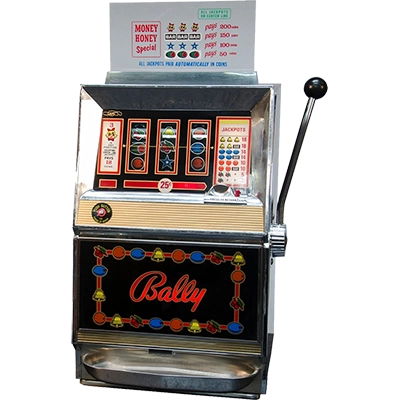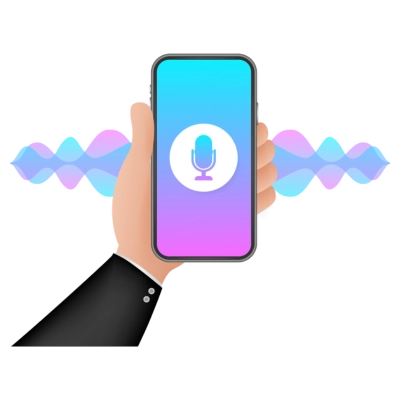Voice-Controlled Casino Games: The Next Frontier?

Casino games have seriously leveled up from the days of those clunky slot machines and plain card tables. Now we get touchscreens with eye-popping graphics that are a sight to behold! But hold on to your chips because there could be an even cooler upgrade on the way: voice control.
You know how you can chat with Siri or Alexa to get info, play music, text, call, or set reminders. Voice technology has made some serious strides. Gone are the days when you had to shout at your phone to get it to understand you. Now, these smart assistants can carry on an actual conversation with you. This means your fav casino games could soon respond to your commands, making things way more fun and hands-free. So, gear up – voice-controlled casino games could be the next big thing!
The Evolution of Casino Game Interfaces
Casino gaming has undergone a dramatic transformation over the decades—from mechanical marvels to sophisticated digital gameplay. Below is a look at how these interfaces have changed, the impact of mobile gaming, and the latest innovations that are shaping the sector!

From Physical Machines to Touchscreens
The introduction of the slot machine in the late 19th century forever altered the gambling world. Charles Fey’s Liberty Bell, with its three spinning reels and symbols, became an instant hit, creating a foundation for all future slot machine developments. Players loved the tactile experience of pulling a lever and watching the reels spin, which became a staple of casino gaming.
The 1960s saw the introduction of electromechanical slots like Bally’s Money Honey, which combined electronic components with mechanical reels. This innovation marked a transition from purely mechanical machines to those integrating electrical elements. The 1970s brought about the first video slots, like Fortune Coin, which used a television screen to display the game symbols. These advancements laid the groundwork for today’s interactive touchscreen interfaces found in casinos everywhere!
Mobile Gaming Revolution
Then came smartphones in the late 2000s, and with them, a new era of gaming. Mobile devices made it possible for users to play casino games whenever and wherever, supercharging accessibility. The App Store and Google Play Store allowed for easy distribution and the search and discovery of mobile games, leading to the widespread adoption of mobile gaming.
Mobile games introduced new gameplay mechanics tailored to touchscreens—they utilized swiping, tapping, etc. Games like Angry Birds and Candy Crush Saga popularized the freemium model, where the base game is free to play, but players can make in-app purchases for additional features (do you know how much money this writer spent on Candy Crush in-app purchases? A LOT). The model proved to be a huge success and became standard in the industry.
Recent Innovations: Gesture Control and VR
Technological advancements continue to mold the gaming industry, introducing new ways for players to interact with games. Gesture control lets players use movements and gestures instead of controllers or touchscreens, adding a physical dimension to gaming that increases engagement.
Virtual reality (VR) is another groundbreaking innovation—players can have a super immersive experience that goes way beyond conventional gaming. VR casinos have created virtual environments where players can “walk” around casino floors, interact with other players, and play games in a fully 3D space. Games like Gonzo’s Quest VR show the potential of VR to upend the gaming experience, providing an immersive environment that feels pretty close to real life!
Voice Technology in Gaming: Current Landscape
Voice tech is continually changing up how players engage with games—from issuing commands to leveraging smart assistants and innovative applications in non-gambling games, this technology is opening new ways for interaction!
Voice Commands in Video Games
Voice commands brought a totally new level of interactivity to video games. Early examples like Mass Effect 3 and Skyrim allowed players to control squad members or perform in-game actions via spoken commands, adding an intuitive and hands-free element to gameplay. This capability lets players navigate menus, execute strategies, and engage in dialogue with NPCs, improving the overall gameplay.
- In tactical shooter games like Tom Clancy’s Ghost Recon: Future Soldier, voice commands enable players to coordinate with AI squad members much more effectively. This feature boosts strategy and quick reactions during intense gameplay.
- Similarly, in Dragon Age: Inquisition, voice commands for managing party tactics add much more depth to combat and control.
Voice Assistants in Smart Devices
And then there are the trusty voice assistants like Siri, Alexa, and Google Assistant which have become part of most people’s daily lives, managing smart home devices, answering questions about anything you can think to ask with accurate info, and facilitating communication. Their integration into gaming platforms and consoles is a huge advancement in terms of benefits. Players can use voice commands to turn on consoles, browse game libraries, and interact with online communities, making the gaming interface a lot more user-friendly.
Beyond basic commands, voice assistants can manage gaming sessions, set reminders for in-game events, and give tips or walkthroughs for the most challenging levels. This incorporation of voice technology into gaming systems definitely makes gaming more convenient and functional for gamers!

Existing Voice Applications in Non-Gambling Games
Voice recognition technology is a staple in some non-gambling games, like Star Trek: Bridge Crew, which uses voice commands in a VR setting. This feature lets players communicate with AI crew members and manage the starship operations, augmenting realism and immersion in the game and making players feel more involved in their virtual roles.
In RPGs like Fallout 4, voice commands enable interactions with AI companions, supplementing character dynamics and narrative immersion. Survival horror games like Alien: Isolation uses voice commands to create tension, meaning players can distract enemies or manage resources verbally. These are just a few examples that show the versatility of voice technology in heightening different gameplay aspects, from tactical decisions to storytelling.
Potential Applications of Voice Control in Casino Games
Of course voice control technology is making its way into the gaming world—it’s the next logical step! Here are all the ways it could benefit players if and when it is integrated into casino app games.
Slot Machines
- Spinning Reels: Players can start the reels with a simple voice command like “Spin” or “Start.” This hands-free approach keeps the game flowing and adds an interactive element that can make playing more engaging. No more fumbling around with buttons—just speak and play.
- Adjusting Bet Sizes: Adjusting bet sizes can be quicker and more intuitive with voice commands. Saying “Increase bet” or “Max bet” instantly changes the wager amount, meaning players can stay focused on the game itself rather than navigating menus.
- Activating Bonus Features: Voice control could also streamline activating bonus features—commands like “Activate free spins” or “Select bonus round” can trigger special game features without interrupting the flow of play.
Table Games
- Placing Bets in Roulette: Voice commands can make placing bets in roulette quicker and more intuitive. Players can say “Bet on red” or “Place $50 on number 17” to instantly set their bets. This approach simplifies the betting process, allowing players to engage with the game more fluidly without navigating through complex interfaces.
- Hit/Stand Commands in Blackjack: In blackjack, voice commands can streamline decision-making. Instead of clicking buttons or using physical gestures, players can simply say “Hit” or “Stand” to indicate their choices. This method speeds up gameplay and enhances immersion, as players can stay focused on their strategies without breaking concentration to interact with the game manually.
- Calling Bets in Poker: Voice control can also be super beneficial in poker. Players can call, raise, or fold using voice commands like “Call,” “Raise to 100,” or “Fold.” This functionality can make online poker games more engaging and faster-paced, as players can communicate their decisions directly without needing to navigate menus or type out commands.
Sports Betting
- Placing Bets by Voice: Voice commands can simplify the process of placing bets—instead of manually entering your bet, you can say, “Put $200 on the Patriots to win” or “Bet $75 on the Miami Heat to cover the spread.” This method means quick and easy wagering, making the betting process more fluid and fun!
- Requesting Odds and Information: Voice control can also be used to get odds and other betting info. You can ask things like, “What are the odds for tonight’s major league baseball game?” or “How did the Mets do yesterday?” to receive instant updates without having to search through menus or apps. This feature gives bettors immediate access to important and useful information.
General Casino App Control
- Navigation Between Games: Voice commands can make getting around a casino app easier—instead of tapping through multiple screens, players can just say, “Go to baccarat” or “Open the slots section” to switch between games in a second. Hands-free navigation will make the app easier to use and faster to access.
- Account Management: Managing an account can be streamlined with voice control. Players can check their betting balance by saying, “What’s my account balance?” or make deposits with commands like, “Add $300 to my account.” These voice commands simplify the process of handling finances within the app, saving time and reducing the complexity of navigating through multiple screens and settings.
- Customer Support Interactions: Voice control can seriously improve customer support interactions by enabling players to request help or report issues by using voice commands. Saying, “I need some help with accessing my account” or “I need to report an issue with a casino game” can connect users to support services. This functionality would improve the customer service experience, giving users quick and convenient access to assistance.
Benefits of Voice-Controlled Casino Games
Voice control technology would add some really exciting new dimensions to casino games with benefits that would boost the gameplay for all kinds of players. Look below at how voice control could make an amazing difference!
Improved Accessibility for Players with Mobility Issues
Voice-controlled casino games would make it so much easier for players with mobility issues to get in on the action—traditional input methods like keyboards or touchscreens can be difficult for those with physical limitations. Voice commands would let these players place bets, play games, and navigate menus easily, making the games more inclusive. This accessibility would open up the player base, making sure that more people can enjoy the excitement of casino games.
For example, a player who has difficulty using their hands can simply say, “Bet on red” in roulette or “Spin the reels” in a slot game to get going. This technology opens up online gambling to a diverse group of players who might otherwise find it harder to participate.
Hands-Free Gaming Experience
As we said before, voice control would be a hands-free approach to playing casino games. Players could make bets, spin slots, and activate special features simply by talking. This convenience allows for multitasking and a more relaxed gaming experience—a player could continue their game while cooking dinner or doing laundry, which is something traditional gaming methods can’t easily accommodate.
Being able to say, “Increase my bet to $100” or “Activate the bonus round” without needing to lift a finger—wild, right? It would free up players from constant manual input.
Potential for Faster Gameplay
Voice commands can also speed up so many aspects of gameplay. In table games like roulette or blackjack, players would be able to place bets or make decisions instantly without having to click through any screens or menus, which is super convenient, especially in casino games that are faster paced and quick decisions must be made.
If you were in the midst of a high-stakes blackjack game, you could say “Hit” or “Stand” to make a move quickly.
Novelty Factor and Entertainment Value
Introducing voice control would also add a unique and engaging new element to casino games. Most players are curious about new technologies, and the ability to control games with their voices would definitely make gameplay feel futuristic and interactive. This kind of novelty would undoubtedly bring in new players who are intrigued by the technology and want to try out innovative features.
The interactive nature of voice control can make games feel more personalized and entertaining. Instead of merely clicking buttons, players can engage in conversational interactions with the game, which can make it more fun.
Multilingual Support Possibilities
Voice-controlled casino games would also have to support multiple languages so they would be accessible to a global audience. By incorporating natural language processing and voice recognition, these games would be able to understand and respond to commands in various languages. This particular feature is super beneficial for online casinos that serve an international player base—it makes sure that language barriers do not hinder the gaming experience, allowing players from different regions to play games in their language.
Let’s say there is a player who speaks Spanish—they can give commands in their native language, like “Apostar en negro” (Bet on black), making the game more inclusive for non-English speakers.
Technical Challenges
Although voice-controlled casino games are not yet mainstream, they do present a cool future for the gaming industry. But, there are a few technical challenges that would have to be addressed before this technology can be adopted. Challenges like accurate voice recognition in noisy environments, handling various accents and dialects, managing latency in real-time games, integrating with existing casino software, and addressing battery life concerns for mobile devices are all considerations.
Accuracy of Voice Recognition in Noisy Environments
A huge hurdle for voice-controlled casino games is getting accurate voice recognition in noisy settings! Background noise can interfere with the system’s ability to correctly interpret voice commands, leading to misunderstandings and player frustration. Advanced noise-cancellation technologies and sophisticated algorithms are required to improve the accuracy of voice recognition systems in certain environments. Companies are developing more refined solutions, but it is still a pretty big challenge—unless you have access to a soundproof room, there is gonna be background noise!
Handling Different Accents and Dialects
For voice-controlled casino games to work globally, the technology has to be capable of handling a variety of accents and dialects. This requires extensive training data and advanced natural language processing algorithms to accurately interpret commands from speakers with different linguistic backgrounds. Misinterpretations due to accent or dialect variations would greatly impact the user experience, so continuous improvements in machine learning and natural language processing are a must to address this issue.
Latency Issues in Real-Time Games
Latency, the delay between a voice command and the system’s response, is a critical issue in real-time casino games. Even minor delays can disrupt the flow of the game and negatively impact the player experience. Reducing latency is really important for maintaining the game’s pace and keeping players engaged. This means efficient processing algorithms and strong network infrastructure to guarantee that voice commands are executed promptly and accurately.
Integration with Existing Casino Software
Integrating voice control with existing casino software and systems poses some serious technical challenges. Casino games and management systems are complex and rely on various software platforms, so verifying compatibility and seamless integration with these existing systems requires extensive development and testing. This integration also has to guarantee that voice control features don’t interfere with the game’s performance or security. Collaboration between voice technology developers and casino software providers will be necessary to address any and all integration challenges.
Battery Life Considerations for Mobile Devices
For mobile gaming, battery life is a pretty big concern, as voice-controlled features can be power-intensive, meaning there will be a quicker drain on the battery. Developers would need to optimize these features to make sure they do not excessively drain the battery so players can partake in longer gaming sessions without the need to frequently recharge their devices. This means creating energy-efficient algorithms and leveraging hardware optimizations available on modern mobile devices.
User Experience Considerations
Voice-controlled casino games are certainly an exciting prospect, but they come with some user experience (UX) considerations. To create an engaging and user-friendly experience, developers have to address issues like the learning curve for voice commands, balancing voice and traditional controls, preventing unintended actions, customization of voice commands, and feedback mechanisms.
Learning Curve for Voice Commands
Introducing voice control to casino games means players will need to learn a new way to interact with their games. Unlike traditional controls, which are usually intuitive and familiar, voice commands can be less straightforward. Developers will have to create clear and comprehensive tutorials to help players understand how to use voice commands effectively. Providing examples and scenarios where voice commands can be used can also help ease players into this new mode of interaction. It’s crucial to make sure that players are not overwhelmed and can gradually become comfortable with a new way of doing things.
Balancing Voice and Traditional Controls
While voice control comes with a lot of benefits, it’s important to keep a balance with traditional controls. Not all players will want to or be able to use voice commands exclusively, so offering a hybrid system where players can switch between voice commands and conventional inputs would cater to a bigger audience. This flexibility means that all players, regardless of their comfort level with voice technology, can play their fav casino games. Additionally, certain actions might be more efficiently executed with traditional controls, and providing options will always improve the user experience.

Preventing Unintended Actions
One particular challenge with voice-controlled systems would be preventing unintended actions. Background noise or accidental commands can lead to unintended game moves, which will be frustrating—even maddening—for players. But implementing confirmation steps for important actions can mitigate this issue! Requiring a verbal confirmation for high-stakes bets or bigger game
Voice-controlled casino games are an exciting prospect, but they come with several user experience (UX) considerations. To create an engaging and user-friendly experience, developers must address issues like the learning curve for voice commands, balancing voice and traditional controls, preventing unintended actions, customization of voice commands, and feedback mechanisms.
Customization of Voice Commands
Customization is always a crowd-pleaser, and this can work in favor of voice-controlled casino games. Allowing players to customize their voice commands can make the system more intuitive and personal—players could set their own commands for common actions like placing bets or choosing the casino games they want to play. This kind of personalization would make the interaction more natural and enjoyable. Developers should provide easy-to-use interfaces for setting up and managing any custom commands.
Feedback Mechanisms (Audio, Visual, Haptic)
Providing feedback is super important for any user interface, and voice-controlled systems are no exception. Since voice interfaces lack the visual and tactile feedback of traditional controls, incorporating audio, visual, and haptic feedback can significantly enhance the user experience. Visual indicators, such as lights or on-screen animations, can show that the system is processing a command. Audio feedback, like confirming sounds or verbal acknowledgments, would reassure players that their commands have been recognized. Haptic feedback, like vibrations, can also be used in mobile devices for extra interaction. These feedback mechanisms help create a more responsive and immersive gaming experience!
Security and Fair Play
As the prospect of voice-controlled casino games becomes more tangible, ensuring security and fair play is paramount. This involves addressing several key challenges: preventing voice spoofing and fraud, verifying game integrity with voice inputs, managing privacy concerns with voice data collection, and complying with regulatory standards.
Preventing Voice Spoofing and Fraud
Voice spoofing is a huge security concern for voice-controlled systems—cybercriminals can create fraudulent voice samples by cloning audio from phone calls or online videos. This poses a higher risk compared to other biometric methods like fingerprints or facial recognition. To combat this, multi-factor authentication (MFA) is absolutely essential. This could look like combining voice recognition with PINs, passwords, or biometric verification like facial recognition or fingerprint scanning. These measures guarantee that even if a voice is spoofed, extra security layers can prevent any unauthorized access.
Also, advanced machine learning algorithms can be employed to detect anomalies in voice patterns, making it much harder for scammers to mimic legit users. These systems are able to analyze vocal characteristics and detect any inconsistencies that suggest there are spoofing attempts.
Verifying Game Integrity with Voice Inputs
Upholding casino game integrity is another must to verify fair play in terms of voice-controlled casino games. This involves making sure that voice commands are accurately interpreted and executed as intended. Implementing strong voice recognition software that can handle diverse accents and dialects is important, as we stated earlier. Continuous monitoring and auditing of voice data can help in identifying and rectifying any discrepancies that could arise from misinterpreted commands.
Moreover, integrating blockchain technology can increase transparency and security. Blockchain can create an immutable ledger of all transactions and commands, making it easier to verify the integrity of game processes and outcomes. Smart contracts can automate payouts and other game-related transactions, verifying they are executed fairly and transparently.
Privacy Concerns with Voice Data Collection
Voice-controlled systems inherently collect and process large amounts of voice data, raising a lot of privacy concerns, so protecting this data from unauthorized access is another important concern. Voice data should be encrypted both in transit and at rest to prevent interception and unauthorized use. Additionally, implementing strict access controls certifies that only authorized personnel can access sensitive voice data.
It’s also important to be transparent with users about data collection practices. Providing clear information on how voice data is collected, used, and stored can help build and maintain trust. Users should be given the option to review and delete their voice data, giving them more control over their personal info.
Regulatory Compliance for Voice-Controlled Gambling
Voice-controlled gambling will have to comply with existing regulatory frameworks that govern online and mobile gaming. This includes confirming that all transactions are transparent and fair and that users are protected from fraud and exploitation. Regulatory bodies may require regular audits of voice-controlled systems to corroborate compliance with industry standards and best practices.
Compliance also involves adhering to data protection regulations like the General Data Protection Regulation (GDPR) in Europe or the California Consumer Privacy Act (CCPA) in the United States. These laws mandate strict guidelines for data collection, storage, and processing, and require organizations to implement the strongest security measures in order to protect user data.
Responsible Gambling Implications
Yes, voice-controlled casino games could change how people play casino app games by making it easier, but it brings with it a few notable considerations to keep in mind when it comes to responsible gambling. The tech should be able to set voice-activated limits and self-exclusion options, help manage impulsivity in betting, use voice analysis to detect possible problem gambling and implement cooling-off periods and warnings. How could it manage this? Look below to find out!
Setting Voice-Activated Limits and Self-Exclusion
We think that one of the more promising features of voice-controlled gambling would be the ability to set limits and self-exclude by using voice commands. Saying, “Limit my daily spending to $100,” or “Don’t allow me to bet today or for a week,” and having those commands implemented immediately would be really helpful—the convenience could make it easier for players to keep control over their gambling habits.
Implementing these features requires technology that accurately understands and executes these commands, and it’s also super important to make sure that these settings can’t be overridden without the proper authentication. This will uphold the integrity of self-imposed limits and exclusion periods so that players stick to their commitments to gamble responsibly.
Potential for Increased Impulsivity in Betting
Voice-controlled betting could also lead to more impulsive betting behavior for some players. Having the ability to place bets quickly and easily through voice commands could make it easier for players to gamble without fully considering their decisions. This convenience might tempt players to place bets more frequently, increasing the risk of gambling-related harm.
To reduce this risk, voice-controlled systems could include prompts that require players to confirm their bets before they are finalized. After a player says, “Place $159 on black,” the system could respond with, “Are you sure you want to place this bet?” This extra step gives players time to reconsider their decisions, thereby curbing impulsive betting behavior.
Using Voice Analysis to Detect Problem Gambling Patterns
Voice analysis technology can be a powerful tool for identifying problem gambling behaviors. By analyzing the tone, frequency, and content of voice commands, these systems can detect patterns that may indicate problematic gambling.
For example, frequent high-stakes bets or rapid betting sequences could trigger alerts, prompting the system to take preventive measures such as suggesting a break or temporarily restricting further bets.
Moreover, voice analysis can also monitor signs of stress or anxiety in a player’s voice, which are associated with problem gambling. Integrating these insights with existing responsible gambling tools can help create a more proactive approach to identifying and helping players who might be at risk.
Implementing Cooling-Off Periods and Warnings
Voice-controlled systems can also help implement cooling-off periods and warnings, like if a player has been betting nonstop for an extended period, the system could suggest taking a break by saying, “You’ve been betting for over two hours. Would you like to take a break?” This can help enforce responsible gambling practices by reminding players to take a breath and think about what they are doing.
Additionally, the system can issue warnings based on betting patterns. If it detects a series of high bets in a short period, it could alert the player with a message like, “You’ve placed several large bets in quick succession. You should consider your spending limit.” These warnings will serve as gentle reminders to help players stay aware of their gambling behavior and to make the best—and safest—decisions.
Market Potential
As for the market potential for voice-controlled casino games, all signs point to considerable promise and growth. Below is an overview of the target demographics, projected adoption rates, potential impact on casino revenues, and investment and development costs!
Target Demographics for Voice-Controlled Games
Voice-controlled games are expected to appeal to a host of players, but there are certain groups that are particularly well-suited for this technology. The main demographics include the following:
- Players with Physical Limitations: Voice control can make gaming more accessible for those who have difficulty using traditional input methods due to any physical disabilities. This inclusion opens up the market to a wider audience that was previously underserved.
- Tech-Savvy Millennials and Gen Z: Younger players who are accustomed to using voice assistants like Siri, Alexa, and Google Assistant are likely to love voice-controlled gaming. These demographics value convenience and innovative technology, making them prime targets for adopting voice-enabled casino games.
- Older Adults: As voice control can simplify interactions, it might also attract older adults who find traditional interfaces challenging to get around. This demographic is growing in the gaming market and could benefit greatly from easier-to-use voice commands.
Projected Adoption Rates
Adoption rates for voice-controlled casino games are currently difficult to predict with precision, given that the technology is still in its early stages. However, industry trends suggest a gradual increase in adoption as the technology improves and gets more reliable. As more casino apps start to experiment with and implement voice control, and as players become more familiar with the technology, adoption rates are expected to rise steadily over the next few years!
Potential Impact on Casino Revenues
The introduction of voice-controlled games could positively impact casino revenues in several ways:
- Increased Accessibility: By making games more accessible, casinos can attract a broader audience, potentially increasing the number of players and overall engagement.
- Better Player Engagement: Voice control can create a more immersive and interactive gaming experience, encouraging longer play sessions and higher spending. The novelty of voice commands can also draw in new players who are curious about the technology.
- Operational Efficiency: Automated voice commands can streamline different operations, from placing bets to navigating game menus, reducing the need for manual interventions and potentially lowering operational costs.
Investment and Development Costs
Developing voice-controlled casino games would involve substantial investment and development costs for the following areas:
- Research and Development: Significant resources are required to develop and refine voice recognition algorithms that can accurately interpret commands in diverse and noisy environments. This involves ongoing research and testing to improve accuracy and reliability.
- Integration with Existing Systems: Integrating voice control into existing casino platforms and games can be complex and costly. It requires ensuring compatibility with current software and hardware, which might involve large modifications or upgrades.
- Security and Compliance: It is of the utmost importance to develop strong security measures to prevent voice spoofing and guarantee data privacy. Additionally, adhering to regulatory requirements for voice-controlled gambling can add to the development costs.
Integration with Smart Home Devices
What are smart home devices? Well, these helpful lil gadgets are things like smart speakers, thermostats, lighting systems, security systems, and appliances. These smart devices automate and control various parts of people’s home life using voice commands or smartphone apps and offer convenience, energy efficiency, and better security. And when they are combined with casino games? It would be a whole new way to play!
Playing Casino Games Through Smart Speakers
Smart speakers like Amazon Alexa and Google Assistant could be used to control casino games using voice commands. Players can place bets, navigate to different game sections, and even play in live dealer games without needing to use their hands. This method makes the gaming process more interactive and user-friendly, allowing for a seamless gaming session. A hands-free approach is particularly useful for multitasking or for those who want a more dynamic way to interact with their games.

Cross-Platform Synchronization
Integration with smart home devices means games can be played across multiple platforms. This means that a game started on a smartphone can be continued on a smart TV or tablet, flexibility that means gameplay is fluid and uninterrupted. Players can easily switch between devices without losing their progress, making the transition between different activities smoother and more fun.
Privacy and Security Considerations in Home Environments
Integrating casino games with smart home devices raises some important privacy and security concerns. Voice data collected by smart speakers must be encrypted and securely stored to prevent unauthorized access, and users need to be informed about how their data is collected, used, and stored, with options to manage or delete their voice data. Verifying that only authorized users can access gaming accounts and place bets is a must, and regular updates and security patches for both the gaming software and smart home devices are necessary to uphold a safe and secure environment.
Personalization Through Voice
Voice control can make casino gameplay super personalized for each player—here’s how it can be used to do so:
Voice-Activated Personalized Game Recommendations
A system that listens to your gaming habits and preferences through your voice commands will learn from you! Based on this information, it will be able to recommend games that are suited to your interests. If you usually play slot games with certain themes or features, the system can suggest similar ones, making your gameplay more fun by offering games you are the most likely to love!
Tailoring Game Difficulty Based on Voice Stress Analysis
Voice stress analysis can pick up on how you’re feeling while you play. If the system detects that you’re getting frustrated or anxious, it can adjust the game’s difficulty to better match your mood. This means you can enjoy a balanced game that stays fun and challenging without becoming stressed out, meaning you stay chill and entertained.
Creating Unique Player Profiles Using Voice Signatures
Everyone has a unique voice, and this can be used to create personalized player profiles. These profiles store information about your preferences, gaming habits, and performance. By recognizing your voice, the system can curate the gaming environment just for you, customizing game settings, themes, and rewards based on what you like.
Regulatory and Legal Considerations
Voice-controlled casino games will come with regulatory and legal issues that need careful attention to maintain compliance and player trust, as with all things online gambling do. The biggest challenges will encompass adhering to existing gambling regulations, developing new rules specific to voice-controlled gambling, verifying the age of players through voice, and navigating international legal variations.
Compliance with Existing Gambling Regulations
Voice-controlled casino games will have to comply with the same regulations that apply to traditional online and mobile casino apps—rules for fair play, data protection, and fraud prevention. Regulators will have to evaluate these new technologies to verify that they meet existing standards. Handling voice data responsibly, in line with laws such as the General Data Protection Regulation (GDPR) in Europe and the California Consumer Privacy Act (CCPA) in the United States, is crucial. These laws have strict guidelines for data collection, storage, and processing to protect player privacy.

New Regulations Specific to Voice-Controlled Gambling
If voice-controlled gambling gains traction like we think it will, new regulations will most likely be developed to address the technology’s unique concerns. These could include rules on voice data storage and usage, requirements for voice command accuracy, and standards to prevent misuse and fraud. Crafting these new regulations carefully will be vital to gaining regulatory approval and keeping user confidence.
Age Verification Through Voice
Verifying the age of players presents a weighty challenge for voice-controlled casino games—the usual age verification methods might not be up to snuff in a voice-activated environment. Implementing voice biometrics could be one solution, as this technology can analyze vocal characteristics to verify the identity and age of users. However, this approach has to be designed to be both accurate and secure. Multi-factor authentication combining voice biometrics with other methods, like identity documents or parental consent for younger users, could provide a more comprehensive solution.
International Legal Variations
The legal landscape for gambling varies wildly across different countries, complicating the global deployment of voice-controlled casino games. Some countries have super strict regulations or total bans on online gambling, while others are more permissive. Developers and operators will have to navigate these different regulations to remain compliant in each market where they want to operate. This could involve tailoring the technology and its implementation to meet local legal requirements, which can be both time-consuming and expensive.
Ethical Considerations
There are also some ethical considerations that come with voice-controlled casino games in creating a responsible and fair gaming space. The biggest considerations are the potential for increased addiction due to easier access, data collection and privacy concerns, and guaranteeing inclusivity and fairness across different user groups.
Potential for Addiction with Easier Access
Voice-controlled gambling can make it easier for players to place bets and interact with games, possibly increasing the risk of addiction. The convenience and speed of voice commands could encourage more frequent and impulsive gambling behavior, as players can place bets without the physical barriers of traditional input methods. This ease of access means developers and regulators have to adopt strict measures to promote responsible gambling. Tools like voice-activated limits, self-exclusion options, and real-time alerts about gambling behavior can help reduce any risks by encouraging players to take breaks and set limits on their gambling activities.
Data Collection and Privacy Concerns
Voice-activated systems collect and process massive amounts of personal data, including vocal characteristics and patterns. Protecting this data from unauthorized access is crucial to maintaining player trust. Encryption of voice data, strict access controls, and clear policies about data use and storage are necessary measures. Players should be fully informed about how their data is collected, used, and protected, and they should have the ability to manage or delete their data as they see fit.
Another concern is the potential misuse of data collected through voice commands. Companies have to make sure that this data is not used to exploit players by targeting them with personalized ads or offers that could encourage problem gambling. Transparency about data practices and rigid ethical guidelines are necessary to prevent this kind of exploitation.
Inclusivity and Fairness Across Different User Groups
Voice-controlled systems need to be designed to be inclusive and fair for all users. This means verifying that the technology accurately understands and responds to commands from people with different accents, dialects, and speech patterns. Failure to accommodate this diversity could lead to a biased and unfair gaming environment where certain groups are disadvantaged.
Moreover, voice recognition technology must be accessible to people with disabilities. While it can offer a lot of benefits for those who have difficulty using traditional input methods, it must also be usable by people with speech or hearing impairments. Developers need to consider these factors to create a truly inclusive gaming experience.
Addressing these challenges requires ongoing collaboration between technology developers, regulators, and advocacy groups. By prioritizing inclusivity and fairness, the gaming industry can create voice-controlled systems that provide equal access and fun for all players!
Future Possibilities
What does the future hold for the integration of voice-controlled technology with casino games? Check out what we think are some of the exceptional possibilities below!
Integration with Other Emerging Technologies (AR, VR)
Voice control can level up the experiences offered by augmented reality (AR) and virtual reality (VR). In a VR casino, you place bets or interact with dealers and other players using only your voice. This combo can create a more interactive and lifelike environment, completely changing how players engage with casino games. AR would be able to overlay gaming elements onto the real world, providing a mixed-medium experience that feels both virtual and tactile.
Advanced AI Dealers Responding to Voice
Future voice-controlled casino games could include AI-powered dealers who respond to players’ voice commands. These advanced AI dealers could handle tasks ranging from explaining game rules to managing bets and giving real-time feedback. This technology would make the gaming experience so much more interactive and personal, as players could have chats with the AI dealers.
Emotion Recognition in Voice for Adaptive Gameplay
Emotion recognition technology can analyze players’ voices to detect their emotional states, and this could be used to adapt the gameplay experience in real time. If the system detects that a player is becoming angry, it could either give some encouragement or suggest taking a break. Conversely, if it senses excitement, it might increase the game’s challenges to keep the player absorbed. This kind of adaptive gameplay can create a more personalized and responsive gaming environment, tailoring the experience to individual players.
Social Features Enabled by Voice Chat in Multiplayer Games
Voice chat in multiplayer games can also improve social interactions, making gameplay more communal and fun. Players can communicate in real-time, strategize, and chat about their gaming experiences (no typing involved), building a sense of camaraderie and teamwork. This can be particularly appealing in multiplayer casino games, where collaboration and social interaction are major elements.
Challenges to Widespread Adoption
We are excited about voice-controlled casino games, but we aren’t naive—they will come to some roadblocks before they can become mainstream.
Player Resistance to New Technology
Some people don’t like change, so there will be those who will be hesitant to adopt voice-controlled casino games due to unfamiliarity with the technology. Traditional gaming methods involving touchscreens and physical controls have been around for a long time, and a lot of players will want to stick with what they know and are comfortable with. This resistance can slow down the adoption rate of voice-controlled games, so educating players about the benefits and ease of use of voice control will be important in overcoming this barrier.

Casino Operators’ Willingness to Invest
For voice-controlled casino games to even get off the ground, casino operators need to be willing to invest in the necessary technology and infrastructure. This means not just the software and hardware required for voice recognition but also the training and development needed to integrate these systems into existing platforms. Given the big upfront costs and the uncertain return on investment, operators might be reluctant to make this particular leap of faith.
Technical Infrastructure Requirements
Implementing voice control in casino games also requires strong technical infrastructure. Accurate voice recognition in noisy environments, handling diverse accents, and verifying low latency in real-time games are big technical challenges. Moreover, maintaining the security of voice data and integrating voice control with current gaming platforms demand advanced technological solutions. These are all infrastructure requirements that will be costly and complex, posing a substantial hurdle to widespread adoption.
Balancing Innovation with Traditional Gaming Experiences
While voice control offers a lot of benefits, it’ll have to be balanced with the traditional gaming experiences that players love. Some players might find voice commands intrusive or less intuitive compared to physical controls, so offering a hybrid approach, where players can switch back and forth between voice control and traditional methods, could help it appeal to a broader audience. Making certain that the introduction of voice control improves casino gameplay without overshadowing the beloved elements will be a major factor in its success—or failure.
Conclusion
Voice-controlled casino games could be the next big thing in the gambling sector, and we hope it comes to fruition! But, like with any new tech, there are a few considerable bumps in the road that have to be worked out.
Let’s do a quick recap about what’s great about this technology and what needs a reboot.
Potential Benefits
Personalization:
- Voice-Activated Personalized Game Recommendations: Systems can recommend games based on a player’s style and preferences, making gameplay more fun.
- Tailoring Game Difficulty Based on Voice Stress Analysis: Games can adapt in real time to the player’s emotional state, offering a more balanced and enjoyable experience.
- Creating Unique Player Profiles Using Voice Signatures: Custom game settings and rewards that match your unique voice and preferences.
Accessibility
- For Players with Physical Limitations: Hands-free gaming makes it easier for everyone to join in the fun, no matter their physical abilities.
Improved Interaction:
- Playing Casino Games Through Smart Speakers: No more tapping screens—just talk to play.
- Social Features Enabled by Voice Chat in Multiplayer Games: Real-time chatting with friends and fellow players, making the game more social.
Challenges
- Player Resistance to New Technology: Some folks just love their traditional touchscreens and might be really hesitant or straight up refuse to switch to voice control.
- Investment Costs: Rolling out this new tech is not cheap, and casinos need to see the value before they invest.
- Technical Infrastructure Requirements: Voice recognition needs to be spot on, even in noisy environments, and handle different accents while keeping data secure.
- Balancing Tradition and Innovation: Bringing in voice control is great, but it shouldn’t take away from the classic gaming experiences that players already love.
Our Predictions for the Future of Voice Control in Casino Games
Wanna know what we think? If you’ve gotten this far, you do! Here’s what we predict:
- Broader Adoption: As people get more comfy with voice tech, more players will jump on board.
- Improved Technology: AI and machine learning will make voice recognition even better, no matter where you are or how you speak.
- Integration with AR/VR: Combining voice control with AR and VR will create some seriously immersive gaming worlds.
- Personalized Interactions: AI dealers that chat with you and games that adapt to your mood will make gaming more fun and tailored to each player.
- Regulatory Developments: New rules will enter the chat to make sure everything is on the up and up (fair and secure), keeping players safe and happy.
To turn voice-controlled casino games from a pipe dream into a reality, developers, operators, and regulators have to work together. By investing in research, committing to responsible gambling, and keeping players up-to-date and engaged, it could happen sooner than we think!




